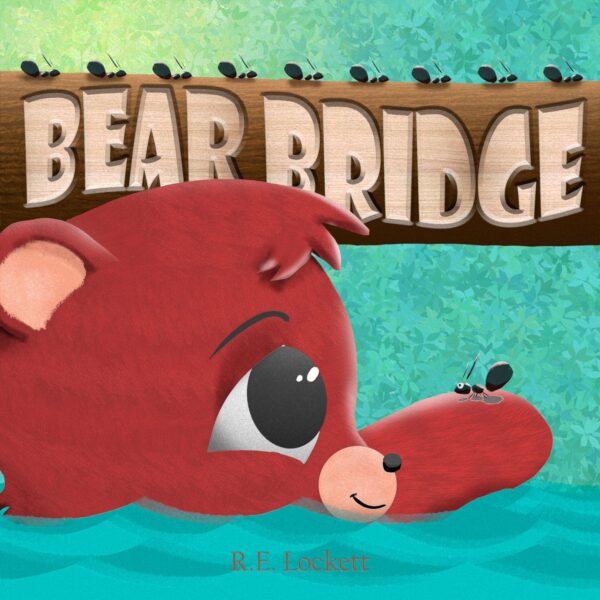Your cart is currently empty!
The Call of the Wild Pulls You In

in
Disclaimer: This post may contain affiliate links for books we recommend. If you make a purchase through these links, at no additional cost to you, we may earn a small commission. See our full Terms of Use here.
The Call of the Wild by Jack London, first published in 1903, is still on the shelves of bookstores across the country today, even over 100 years later. That’s because the novel about a dog who abandons his domesticated life to explore the wild has something to offer readers of all ages. The story offers timeless lessons about man’s relationship with nature and how an animal can show us our best, even when we least expect it.

Long hailed as one of the greatest pieces of American literature, the book takes place during the Klondike Gold Rush in Alaska in 1897. It deals with themes such as loyalty, masculinity, identity, and primitivism. The protagonist is Buck, a domesticated farm dog from California. Buck is kidnapped and sold, eventually making a trek across the Alaskan frontier.
“In other places where life is easier, it is poorer. Other things being equal, a hard environment makes strong men.”
These words have struck deep chords with people since they were first placed at the head of one of 20th century literature’s most enduring tales. London wrote about love between men and dogs—not in a romantic sense, but a special bond forged from living on a hard frontier with its cold and harsh realities. This story speaks volumes about man’s relationship with animals. It also conveys an important message about survival against all odds and self-reliance.
A Personal Connection
For me, what makes The Call of the Wild special isn’t anything literary, but something more personal. My mom read me to sleep with it when I was young and we had our own bond over how much we loved it. We both love how visceral and adventurous it is. And while you may not have a parent who’s read you to sleep with it, chances are there’s someone in your life who loves it as much as I do. No matter where you are in life or what kind of person you are, there will always be someone out there who connects with your favorite book on a deep level. It reminds us that books aren’t just stories – they’re living things that join us to each other and make us feel less alone in an enormous world.
Jack London is a personal favorite, and I’ve read everything he wrote, but The Call of the Wild is his masterpiece. London was an adventurer who explored the American Frontier. He lived the adventure he longed to write about and, as a result, wrote what many consider the best dog story ever told. It’s also arguably London’s best work.
Learn by Living
London explored the frontier during a time when North America was being transformed. Many people were flocking to the West seeking their fortune in the untamed wilds. Some succeeded, some failed miserably. He writes about both the successful and those who fell victim to nature’s unforgiving strength. London explores how we can sometimes be our own worst enemy and how it is often better to accept one’s place in life than fight for something that you cannot get. He wove this theme of acceptance throughout much of his work, including The Call of the Wild. I think everyone should read it at least once every year because it reminds us we need to learn from others’ mistakes so as not to repeat them ourselves.
“I want to go where the white men cannot go, and see what they have seen,”
Jack London told a friend as he sailed for Alaska at nineteen. He was off to experience life in a way that would later inform his books, from works like The Call of the Wild, to White Fang. While we may accept our limitations, London believed in testing them. During his lifetime, London travelled through most of North America and even lived with fishermen in Japan. For all of that time, he was constantly experiencing new things, eating unfamiliar foods and experiencing nature firsthand. His books are full of characters who learn by living.
If you’re looking for an adventure novel or something about survival, you’ll love London’s work. But if you’re more interested in writing fiction based on your own experiences, then read him closely. Every description is clear-eyed and vivid without being flowery or overdone—and every detail you include adds depth to your own stories. You live a unique existence altogether extraordinarily. Write it so.
The American Frontier
With adventure, beauty, and excitement, author Jack London writes about a rugged American frontier. Free to roam, nature and humans alike fought for survival. Call of the Wild is an account of Buck’s transformation from domesticated dog to wild animal in order to survive.
In 1903, London had already established himself as a successful author when he released The Call of the Wild. Despite its new and controversial style for literature, both critics and the public alike received it well, winning him immediate popularity and financial success. Set in 1897, during Alaska’s Gold Rush period, The Call of the Wild is an adventure story that portrays life in harsh conditions as a test for Buck.
Over time, however, Buck learns how to overcome his domestication and adapt to his environment with its coldness and dangers. Throughout history, people have longed for freedom. During times of peace, they seek adventure. During times of war, they wish to protect their homeland from invaders. As we look back into our own lives, we can see ourselves striving for freedom just like animals in wild nature.
Man’s Best Friend
When you read a book that has stuck with culture for over 100 years, you know there’s something special about it. And when that book is written so beautifully that it doesn’t even sound like something from a century ago? It only gets better. Jack London’s classic weaves together his observations about humans, animals and nature into a story about survival, loyalty and morality. I can’t get enough of it—it will suck you in in no time at all.
London uses his experience with dogs to write a story filled with human emotion and connection. Dogs are truly man’s best friend and one can only imagine how hard it must be for them to be separated from their owners. Dogs were first domesticated around 15,000 years ago. Since then, humans have bred them into all kinds of shapes and sizes, but also with diverse temperaments and personalities. Often for utilitarian purpose, we’ve bred dogs to be herders, hunters, trackers, companions and guards. We’ve bred dogs to be like us. And yet there are still plenty of breeds that seem more dog-like than others—and they’re often our favorites because they remind us of our own pets (or even ourselves).
London presents a story that knows full well that relationship between dog and man. It shows, too, the more troubling kind. In domesticating and breeding man’s best friend, we haven’t always treated them so. London brings up questions about whether we’ve been fair to our dogs—and whether they’ve been fair to us. This makes The Call of the Wild such an interesting read. That’s true for anyone who loves dogs—and for anyone who wants to understand their relationship with their own pet better. There are plenty of books out there about dogs and even plenty about man’s best friend. None have ever made me think as much as London’s classic did.
The Call
When he leaves his comfortable home in California and travels to Alaska as a sled dog, Buck must learn to survive in a wild that he has never known. Deep inside of him, though, stirs the adventurous passion of his ancestry. If you’ve ever felt the call of something more primal beckoning you out into the wild, then Buck’s story will resonate with you. His journey teaches him about life, but also about himself. He learns that there are things more important than comforts and luxuries: friendship, loyalty, and love. Jack London knows what it means to feel trapped, alone, cut off from society and loved ones. In The Call of the Wild, he takes readers through an emotional journey. We see man separated from civilization, and from human companionship. Through meeting new friends (both canine and human) along his journey, Buck grows stronger physically and emotionally.
His experiences allow him to understand that while life may be cruel, it is also good. Just as humans can have good days and bad days, so too can animals. This experience changes Buck’s outlook on life forever and allows him to find happiness where he once only found misery. Buck learns what it means to be truly free through hardship. He learns, too, what it means to be wild.
-R.E.

